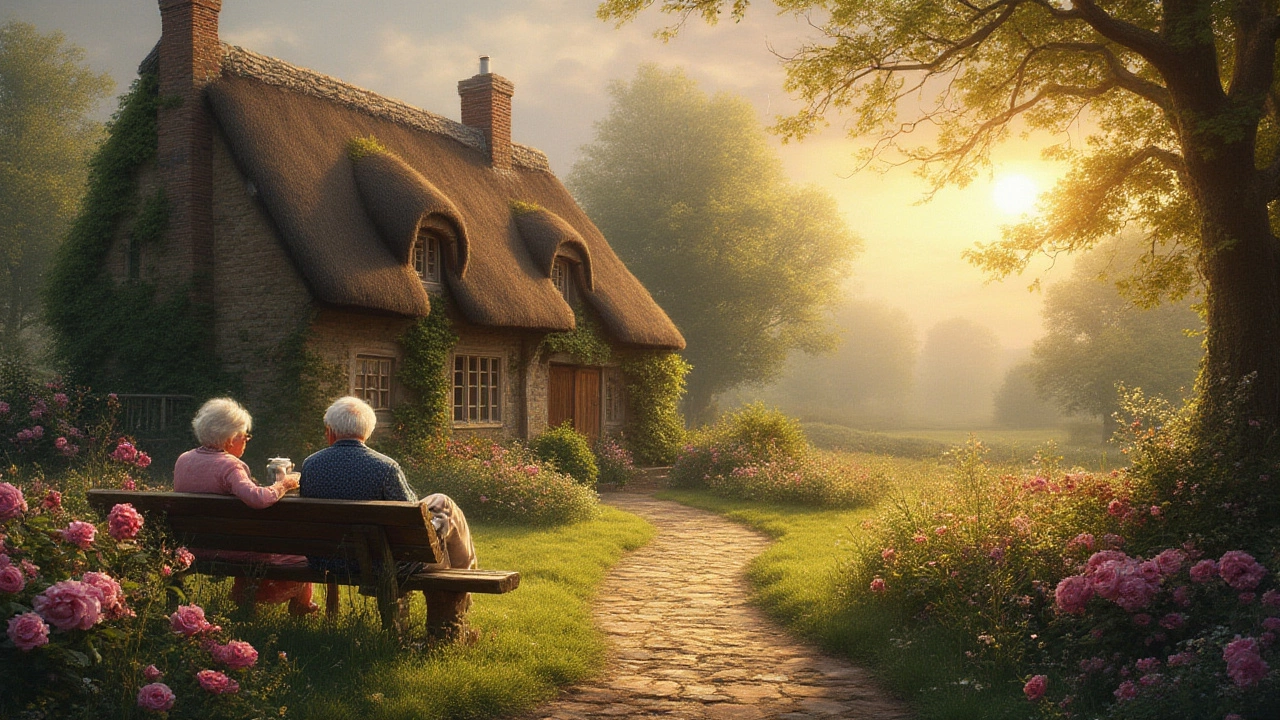Cottage Meaning: Simple Definition and Real Appeal
When you hear the word "cottage" you probably picture a cosy, low‑rise house tucked in the countryside. But what exactly makes a cottage a cottage? In plain terms, it’s a small, single‑family dwelling that usually has a pitched roof, a chimney, and a garden right next to the front door. Unlike a big suburban house, a cottage is meant to feel intimate and easy to look after.
Where the Word Came From
The term dates back to medieval England. Back then a "cottage" was a humble shelter for peasants who worked the land. It wasn’t fancy – just four walls, a thatched roof, and maybe a loft for storage. Over the centuries the idea turned romantic, especially during the 19th‑century countryside revival when city folk started renting cottages for weekend getaways. That history still shows up today in the charming details you see: exposed beams, stone walls, and a cosy fireplace.
Key Features That Define a Cottage
Today a cottage still keeps a few core traits:
- Size: Usually under 1,500 sq ft, often with two or three bedrooms.
- Layout: Open‑plan living spaces, a modest kitchen, and a snug sitting area.
- Design: Pitch‑roof, brick or stone exterior, and a small garden or yard.
- Location: Set in rural or semi‑rural spots, close to nature trails, lakes, or historic villages.
These elements combine to give the cottage its relaxed vibe. You don’t need a massive draw‑string to feel at home – the simplicity is the selling point.
If you’re hunting for a place to stay in Lancashire, look for a property that ticks these boxes. A true cottage will have a living room with a fireplace, a kitchen that’s functional but not industrial, and a garden you can sit in with a cup of tea. The décor often leans towards a "cottagecore" style – think soft fabrics, wooden furniture, and a few vintage touches.
Modern cottages sometimes add a splash of contemporary comfort – under‑floor heating, wifi, or a modern bathroom – without losing the original charm. This blend of old‑world feel and new‑world convenience is why cottages stay popular for both short breaks and full‑time living.
When you compare a cottage to a standard house, the biggest difference is the scale and the feeling of being close to nature. A cottage invites you to slow down, enjoy a garden, and appreciate simple living. That’s why many people choose a cottage for a romantic getaway, a family holiday, or even a permanent move away from the city hustle.
So, what’s the bottom line? A cottage is a small, cosy home rooted in history, built for easy living and a strong connection to its surroundings. Whether you’re booking a cottage in Lancashire for a weekend or looking to buy one, knowing this meaning helps you pick the right place that matches the atmosphere you want.

Cottage vs Small House: Key Differences, Meaning & Living Experience
Cottages and small houses both sound cozy, but they’re not the same. Explore why they’re different, what makes a place a cottage, and how living in each feels.
Continue Reading